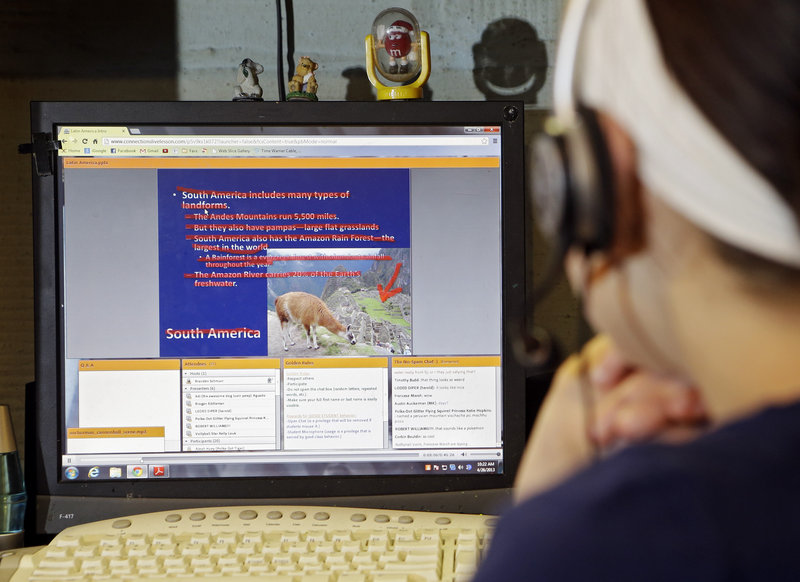There are advantages to being first with a new idea. If it works, you get the benefit while others are still stuck in the past.
But there are also advantages that come to those who wait. They get to see where the pitfalls are and learn from others’ mistakes.
When it comes to charter schools, Maine can’t be first. As the 40th state to adopt this public school structure, there are many states with a lot more experience than we have.
But if it’s too late for Maine to be first, we can still be the smartest. The Maine Charter School Commission is doing the right thing by employing a slow but careful approach to approving new charters, especially controversial virtual charter schools.
The commission is developing rules that would create accountability requirements for virtual schools, in which students interact with their teachers through a computer. Before approving Maine’s first virtual charter school, the commission is wise to avoid repeating mistakes made elsewhere.
And there are plenty of mistakes to learn from.
A study released last year by researchers from Western Michigan University showed that only 27 percent of full-time students at virtual schools run by K-12 Inc., the nation’s largest online education company, met federal Adequate Yearly Progress goals, compared to 52 percent at traditional public schools.
The researchers also found that virtual school students scored lower in reading and math and graduated at a lower rate than counterparts in regular public schools.
That information is reason enough to proceed cautiously. Unfortunately, that’s not the position of the LePage administration, which is encouraging commission Chairwoman Jana Lapoint to move faster.
Lapoint and the other commission members should not give in to the pressure. Gov. Le-Page and Education Commissioner Stephen Bowen have been influenced by K-12 and a nonprofit that the companies help fund. The companies used their influence to help Maine develop digital-education policy, including drafting an executive order that was later signed by the governor.
Maine should try to learn what worked in other states and what didn’t. We should also make sure that before public money goes to an out-of-state corporation, there are strict provisions in place to hold the operators responsible for results.
There is no reason to rush. If full-time virtual schools are going to be part of the public education system, they should be carefully supervised. The charter commission should develop rules that avoid the mistakes made in other states.
If they get this right, they could make Maine a national model, which would make the state “first” after all.There are many states with a lot more (charter school) experience than we have. But if it’s too late for Maine to be first, we can still be the smartest.
Send questions/comments to the editors.



Success. Please wait for the page to reload. If the page does not reload within 5 seconds, please refresh the page.
Enter your email and password to access comments.
Hi, to comment on stories you must . This profile is in addition to your subscription and website login.
Already have a commenting profile? .
Invalid username/password.
Please check your email to confirm and complete your registration.
Only subscribers are eligible to post comments. Please subscribe or login first for digital access. Here’s why.
Use the form below to reset your password. When you've submitted your account email, we will send an email with a reset code.